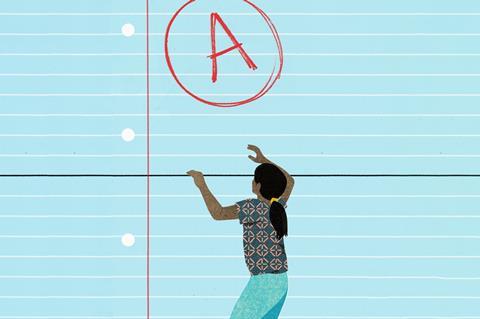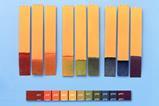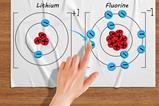Ensure your students improve their performance when it comes to final exams

Exam season is quickly approaching and many of us are in the middle of setting and marking mock examinations for our older students. What happens after those assessments is as important as the tests themselves. Failing to follow up just takes us back to the clichéd analogy of weighing the pig: we spend so long weighing the pig and forecasting the pig’s weight that we run out of time to feed the pig.
1. Plan for feedback
Before you tackle the marking, think about how you will approach feedback. Going through mocks question by question in class can be tedious, time consuming and frustrating for all involved. Instead, consider breaking this up into tasks that students can complete by themselves (either for homework or in class) and other activities with input from you.
Do go through the overall issues that have caused problems. A whole class feedback sheet is good for this, or try photographing the errors in student work as you are marking and make a collage to display on screen.
2. Avoid detailed analysis
Mocks are a snapshot. The data they produce doesn’t hold up to scrutiny, so don’t get bogged down with detailed analysis. Time spent on question by question or assessment objective evaluation probably isn’t worth it. Your time is better spent elsewhere.
Analyse for particular topic weaknesses if you feel it’s necessary, but don’t put too much emphasis on this in your planning for the post-mock period. Teenagers are notoriously changeable creatures. Just because they got something incorrect (or even correct) in that exam, doesn’t mean the same would happen if they did that particular question again on a different day. Accept the imperfection of the mock process. That way, you’ll reduce your stress levels and gain perspective on the whole process.
3. Empty space is wasted potential
Sometimes lots of your class will leave certain questions blank, which can leave you a bit in the dark about where their issues are. Use examiner’s reports to pick out issues where you haven’t got sufficient responses from your own students. Don’t immediately give students the mark scheme answer. Give them time in the lesson to use support resources (revision guides, knowledge organisers, etc) to attempt the missed question so you can really drill down into their difficulties.
4. Tackle difficult topics
Some topics in chemistry are generally considered to be difficult; electrolysis is a classic. Students often show weaknesses in these topics and it can be easy to minimise this and put their wrong answers down to it being a difficult topic. Often the cause of difficulty is in foundational knowledge, such as structure and bonding or atomic structure – so spend time exploring this. Time spent on the basics is never wasted.
How to unpack difficulties with electrolysis equations
Symptom: Lots of students fail to get the marks for writing an equation for the process occurring at the negative electrode when sodium chloride solution is electrolysed.
Diagnosis: Work backwards through the conceptual understanding needed:
- Do they know the rules regarding discharge of metal ions at the negative electrode?
- Do they roughly know their reactivity series including hydrogen?
- Do they know how to write half equations? Balancing both atoms and charge.
- Do they understand why ions have formal charges?
- Do they know the relative charges of the subatomic particles?
- Are they able to determine the number of each subatomic particle for an atom?
5. Prioritise
There isn’t time to deal with all the issues that come to light from the mocks. Prioritise which topics you need to work on. Even if the whole class were unable to recall the chemical test for an alkene, it probably isn’t worth spending lots of time on (and certainly not worth the time needed to repeat the practical procedure). Focus relentlessly on the basics: balancing equations, basic calculations, structure and bonding, atomic structure, acids and bases and key chemical reactions.














1 Reader's comment